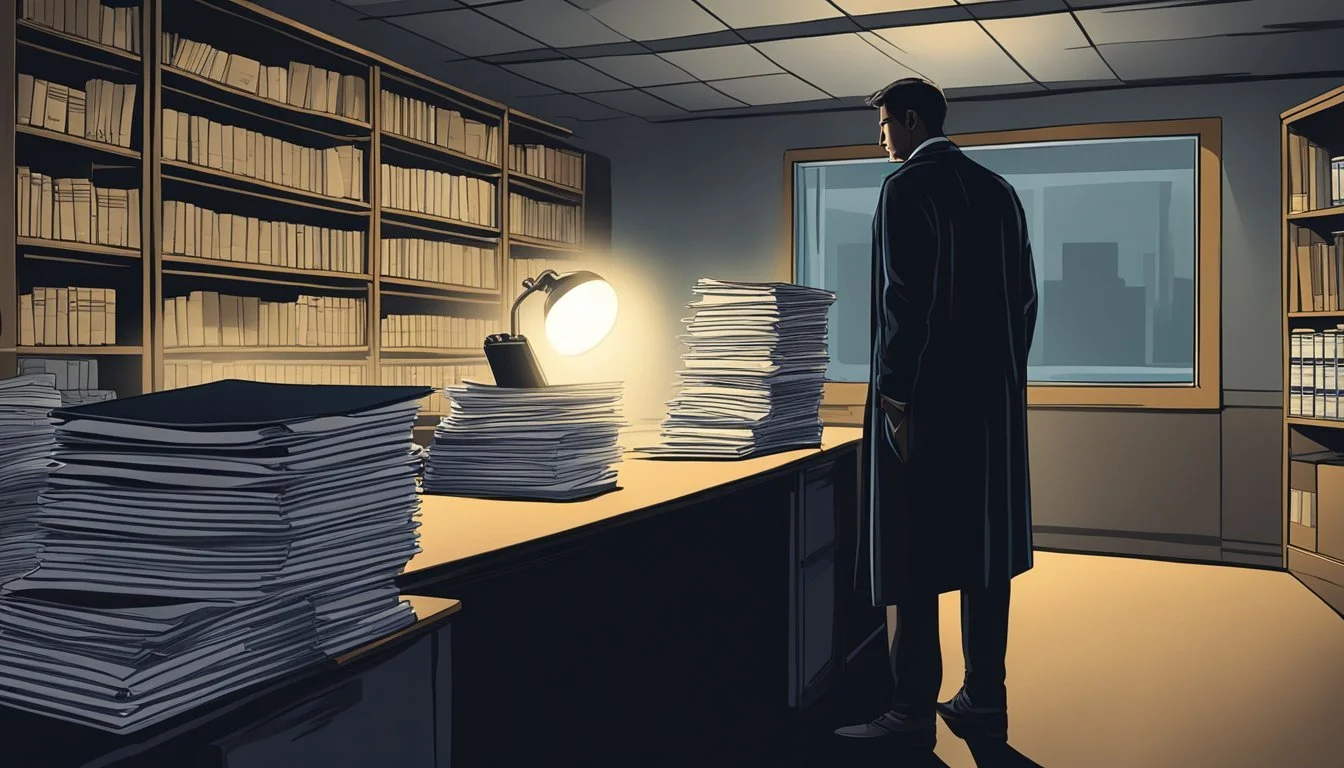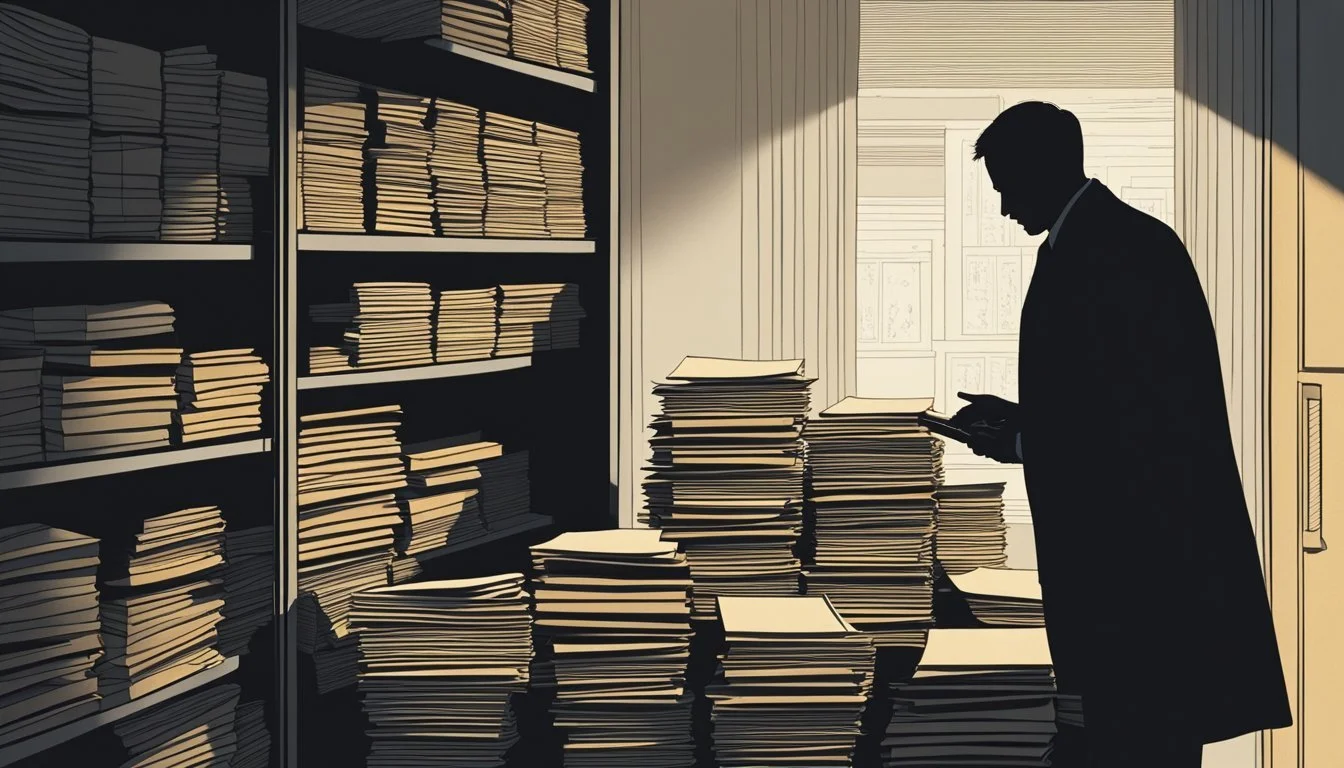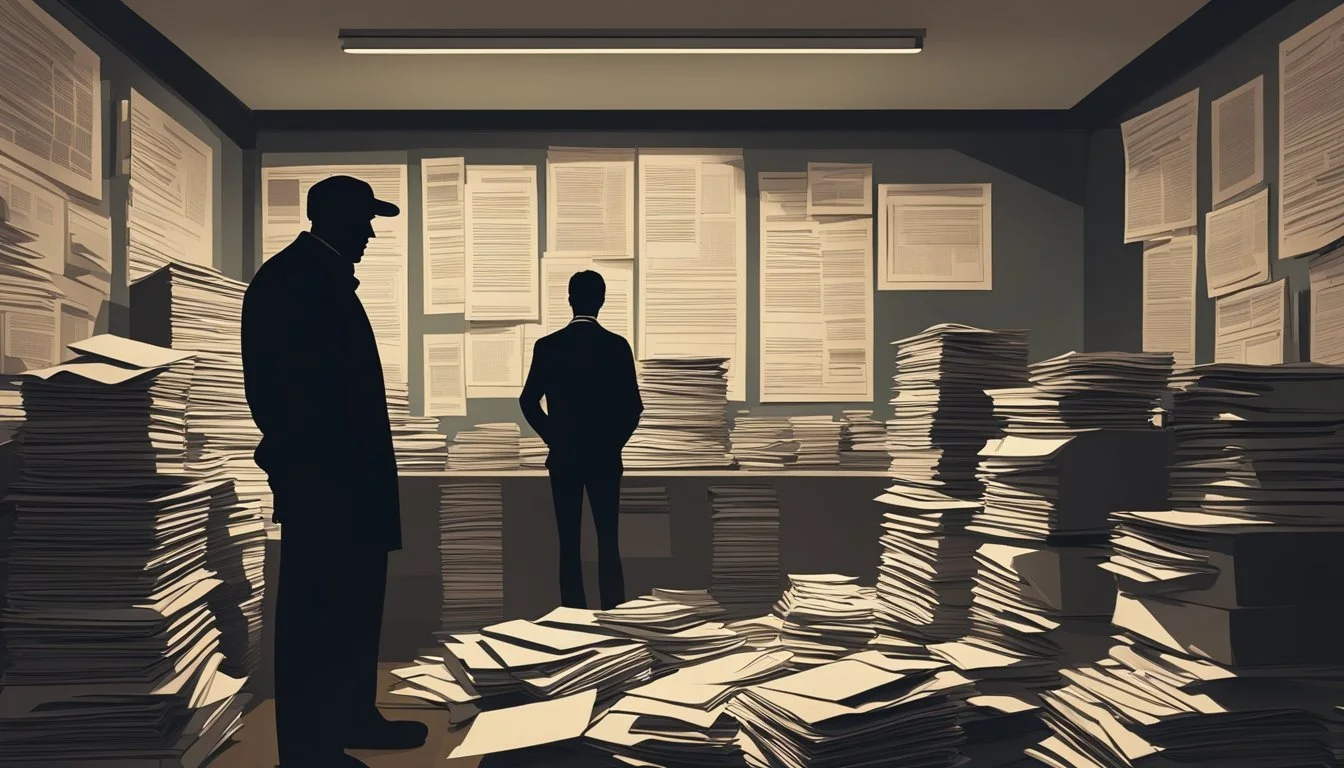8 Fascinating Documentaries on High-Profile Whistleblower Cases
Exposing Truth in the Modern Era
Documentaries exploring high-profile whistleblower cases offer viewers a unique window into the world of corporate and government accountability. These films shed light on individuals who risked their careers, reputations, and sometimes even personal safety to expose wrongdoing within powerful institutions.
Whistleblower documentaries serve as powerful tools for educating the public about important issues and inspiring social change. By presenting real-life stories of courage and conviction, these films capture the human drama behind headline-making revelations while also delving into complex ethical and legal questions. From government surveillance to financial fraud, the subjects tackled in these documentaries span a wide range of critical topics that continue to shape public discourse and policy.
1) Citizenfour
Citizenfour is a gripping documentary that offers an unprecedented look into one of the most significant whistleblowing events in recent history. Directed by Laura Poitras, the film chronicles the revelations of Edward Snowden, a former National Security Agency (NSA) contractor.
The documentary provides a real-time account of Snowden's decision to expose the NSA's massive surveillance programs. It captures the tense moments in a Hong Kong hotel room as Snowden shares classified information with journalists Glenn Greenwald and Ewen MacAskill.
Poitras' camera intimately records Snowden's motivations, fears, and the weight of his choices. The film showcases his calm demeanor and sincere commitment to revealing what he believed were unconstitutional practices by the U.S. government.
Citizenfour not only documents the unfolding of a major news story but also raises important questions about privacy, government overreach, and the role of whistleblowers in a democracy. It offers viewers a chance to see Snowden beyond media portrayals and judge his actions for themselves.
The documentary received critical acclaim for its timeliness and the unprecedented access it provided to such a high-profile whistleblowing case. It serves as a powerful testament to the impact one individual can have in exposing perceived injustices.
2) The Great Hack
"The Great Hack" explores the Cambridge Analytica scandal and its impact on global politics. This Netflix documentary sheds light on the dark side of big data and social media manipulation.
The film focuses on key figures involved in the controversy, including whistleblower Brittany Kaiser. As a former Cambridge Analytica employee, Kaiser provides insider insights into the company's operations and its connections to political campaigns.
Directors Karim Amer and Jehane Noujaim weave together complex threads of data mining, targeted advertising, and electoral influence. They examine how personal information collected from social media platforms was used to sway voter opinions.
The documentary also features David Carroll, an academic who pursued legal action to reclaim his data from Cambridge Analytica. His quest serves as a narrative thread throughout the film, illustrating the broader implications of data privacy.
"The Great Hack" aims to demystify the technical aspects of data harvesting and its potential for manipulation. It presents a sobering look at the power of information in the digital age and raises important questions about online privacy and democratic processes.
3) The Fifth Estate
The Fifth Estate is a renowned Canadian investigative documentary program that has been uncovering important stories since 1975. It airs on CBC Television and has garnered numerous awards for its hard-hitting journalism.
The program focuses on exposing wrongdoing and holding those in power accountable. Its team of reporters tackles a wide range of topics, including politics, crime, corruption, human rights, and environmental issues.
Each episode of The Fifth Estate delves deep into its subject matter, often featuring extensive research and interviews with key figures. The show has covered many high-profile whistleblower cases over the years, shedding light on previously hidden information.
Viewers can watch full episodes of The Fifth Estate online through CBC Gem or on the program's YouTube channel. This accessibility allows a wider audience to engage with its important investigative work.
The Fifth Estate continues to produce provocative and fearless journalism, addressing issues that matter to Canadians and global audiences alike. Its commitment to in-depth reporting and uncovering the truth makes it a valuable resource for those interested in investigative documentaries.
4) Silenced
"Silenced" is a revealing documentary that sheds light on the experiences of high-profile whistleblowers in the United States. The film premiered at the International Documentary Film Festival in Amsterdam in November 2014.
The documentary focuses on prominent clients of the Government Accountability Project, an organization dedicated to protecting whistleblowers. It features the stories of Thomas Drake, a former National Security Agency employee, and John Kiriakou, who worked for the Central Intelligence Agency.
These individuals faced significant consequences for exposing what they believed to be government wrongdoing. The film explores the personal and professional challenges they encountered as a result of their actions.
"Silenced" provides a compelling look at the complex issues surrounding whistleblowing in national security contexts. It examines the tension between government secrecy and the public's right to know.
The documentary offers viewers a rare glimpse into the lives of those who risk everything to expose what they perceive as misconduct within powerful institutions. It raises important questions about transparency, accountability, and the protection of whistleblowers in modern society.
5) We Steal Secrets: The Story of WikiLeaks
This 2013 documentary, directed by Oscar-winning filmmaker Alex Gibney, explores the complex story of WikiLeaks and its founder Julian Assange. The film provides an in-depth look at the organization's rise to global prominence and its impact on government transparency.
Gibney's work traces Assange's journey from his early days as a suspected hacker to his eventual role as the face of WikiLeaks. It examines the organization's most significant leaks and their consequences on international politics and diplomacy.
The documentary features interviews with key figures involved in WikiLeaks' operations and those affected by its revelations. It presents a balanced view of Assange, portraying him as both a champion of truth and a controversial figure.
We Steal Secrets delves into the ethical questions surrounding WikiLeaks' activities. It explores the tension between government secrecy and the public's right to information, as well as the personal costs borne by whistleblowers.
The film also covers the sexual assault allegations against Assange and their impact on his reputation and WikiLeaks' mission. It offers viewers a comprehensive look at one of the most influential and divisive organizations of the digital age.
6) Snowden
Edward Snowden, a former CIA employee and NSA contractor, became one of the most high-profile whistleblowers in recent history. In 2013, he leaked classified information revealing extensive global surveillance programs run by the U.S. government and its allies.
Snowden's disclosures sparked intense debates about privacy, national security, and government transparency. The leaked documents exposed the scale and capabilities of surveillance operations, including programs like PRISM and XKeyscore.
After leaking the information, Snowden fled to Hong Kong and later sought asylum in Russia. The U.S. government charged him with espionage, leading to his continued exile.
Laura Poitras documented Snowden's story in her Oscar-winning documentary "Citizenfour" (2014). The film provides a firsthand account of Snowden's decision to become a whistleblower and the immediate aftermath of his revelations.
Snowden's actions continue to influence discussions on digital privacy and government oversight. His case remains controversial, with some viewing him as a patriot and others as a traitor.
7) Dirty Wars
"Dirty Wars" is a 2013 documentary film directed by Richard Rowley that exposes covert U.S. military operations around the world. The film follows investigative journalist Jeremy Scahill as he uncovers the hidden activities of the Joint Special Operations Command (JSOC).
Scahill's investigation takes him to Afghanistan, Yemen, and Somalia, where he reveals the impact of secret military actions on civilian populations. The documentary sheds light on night raids, drone strikes, and other controversial tactics employed in the War on Terror.
One notable case explored in the film is that of Anwar al-Awlaki, an American citizen killed by a U.S. drone strike in Yemen. This incident raised questions about the legality and ethics of targeting American citizens without due process.
"Dirty Wars" also examines the story of Abdulelah Haider Shaye, a Yemeni journalist imprisoned after reporting on a U.S. cruise missile strike that killed civilians. The film suggests his detention was influenced by U.S. government pressure.
Through interviews with military insiders, victims' families, and government officials, "Dirty Wars" presents a critical view of America's covert military operations. The documentary challenges the transparency and accountability of these secretive programs.
8) The Most Dangerous Man in America: Daniel Ellsberg and the Pentagon Papers
This 2009 documentary explores the life and actions of Daniel Ellsberg, a former military strategist who leaked classified documents about the Vietnam War. The film, directed by Judith Ehrlich and Rick Goldsmith, received an Academy Award nomination for Best Documentary Feature.
Ellsberg worked as a high-level Pentagon official during the Vietnam War. In 1971, he made the decision to release 7,000 pages of top-secret documents to the press, known as the Pentagon Papers.
These documents revealed that the U.S. government had been misleading the public about its involvement in Vietnam for decades. Ellsberg's actions sparked a national debate about government secrecy and the role of the press in a democracy.
The documentary uses interviews, archival footage, and reenactments to tell Ellsberg's story. It covers his time as a Marine, his work at the RAND Corporation, and the events leading up to his decision to become a whistleblower.
The film also examines the aftermath of the Pentagon Papers' publication, including the Nixon administration's attempts to discredit Ellsberg and the landmark Supreme Court case that followed.
Impact of Whistleblower Documentaries
Whistleblower documentaries have become powerful tools for exposing corruption and influencing societal change. These films raise awareness, shape public opinion, and often lead to concrete policy reforms.
Public Awareness and Understanding
Whistleblower documentaries bring complex issues to light in accessible ways. They break down intricate scandals, making them digestible for general audiences. Through compelling storytelling, these films humanize whistleblowers and their struggles.
Documentaries often reach wider audiences than news reports alone. They provide in-depth context and emotional resonance that can stick with viewers long after watching. This increased public understanding can lead to greater civic engagement and demand for accountability.
Many whistleblower films spark important conversations in workplaces, schools, and homes. They encourage people to question authority and consider their own ethical responsibilities.
Influence on Policy and Legislation
The impact of whistleblower documentaries extends beyond public awareness to concrete policy changes. High-profile films often put pressure on lawmakers and organizations to address exposed issues.
Several documentaries have directly contributed to new legislation protecting whistleblowers. They highlight gaps in existing laws and showcase the personal risks whistleblowers face. This can motivate policymakers to strengthen legal safeguards.
These films also influence corporate policies. Organizations may implement stronger internal reporting mechanisms or ethics training in response to public scrutiny generated by documentaries. Some companies have faced boycotts or shareholder pressure after damaging revelations in widely-viewed films.
Whistleblower documentaries serve as cautionary tales for would-be wrongdoers. The threat of exposure through film can act as a deterrent against corruption and unethical behavior.
Ethical and Legal Considerations
Whistleblower cases involve complex ethical and legal issues. Protecting those who expose wrongdoing while balancing the need for confidentiality presents unique challenges for organizations and legal systems.
Protection of Whistleblowers
Whistleblower protection laws aim to shield individuals who report misconduct from retaliation. These laws vary by country and industry. In the U.S., the Whistleblower Protection Act covers federal employees, while the Sarbanes-Oxley Act protects corporate whistleblowers.
Key protections often include:
• Job security • Confidentiality • Legal recourse
Despite legal safeguards, whistleblowers may still face career setbacks or social ostracism. Some high-profile cases have led to improved protections. The Dodd-Frank Act, for example, established a whistleblower reward program for reporting securities violations.
Balancing Confidentiality and Transparency
Organizations must navigate the tension between maintaining confidentiality and promoting transparency. Confidentiality agreements protect sensitive information and trade secrets. However, they can also be used to conceal unethical or illegal activities.
Transparency is crucial for accountability but carries risks. Leaked information may harm innocent parties or compromise ongoing investigations. Courts often weigh public interest against potential damages when deciding whistleblower cases.
Some strategies to balance these concerns include:
• Clear reporting channels • Independent review processes • Graduated disclosure policies
Ethical guidelines for media coverage of whistleblower cases emphasize fair reporting and protecting sources. Responsible journalism plays a vital role in informing the public without compromising legal proceedings.





